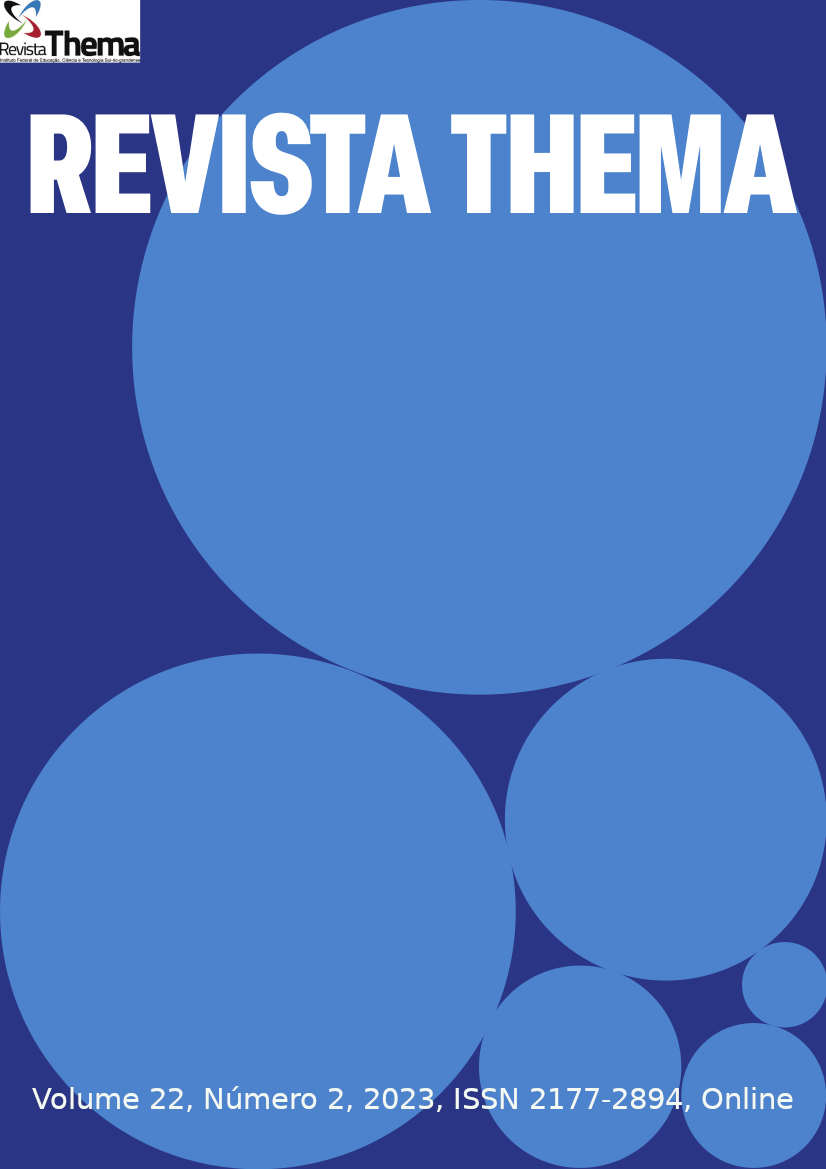Autobiography as a resource in extension actions
perceptions about the Happiness and Well-Being Project
DOI:
https://doi.org/10.15536/thema.V22.2023.662-675.3163Keywords:
university extension, curricularization, CNE/CES Resolution No. 7/2018, Uniube, happiness, well-beingAbstract
This paper aims to report the curricularization process of the university extension conducted by the Pro-Rectory of Research, Graduate and Extension (PROPEPE) of the University of Uberaba (Uniube) regarding the Happiness and Well-being course, which is a mandatory component of enrollment in all curricula of the current in the modalities of face-to-face teaching and distance. The report focuses on the experience detailed in distance education, which is a project is associated to the Active Citizenship Extension Program, of the human rights extension line, and coordinates the assumptions of autobiography and oral history through an oral life history interview and the writing of letters. From the theoretical point of view, this project articulates the concepts of memory, experience and narrative activity in Benjamin (1994, 2006), Bondía (1996, 2002) and Foucault (2006); from the methodological point of view, it coordinates the assumptions of the autobiography in Bolivar (2001), Cartius (2013); Foucault (1992); Ferraroti (2010), Lejune (2008) and oral history of life in Garnica (2012), Meihy (2005) and Minayo (2008). The methodological itinerary is organized in phases, being each phase a point of intersection in terms of contents contained din the course teaching plan. The results observed in the first year of the project highlight the stimulus for self-reflection and personal clarification mediated by life different subjects’ life histories in different social contexts. It contributes for undergraduate student in different areas of knowledge to be able to understand the subjective particularities that involve the process of socioemotional maturation by identifying it with the process of valuing itself results in the condition of humanization.
Downloads
Downloads
Published
How to Cite
Issue
Section
License
O autor responsável pela submissão representa todos os autores do trabalho e, ao enviar o artigo para a revista, está garantindo que tem a permissão de todos para fazê-lo. Da mesma forma, assegura que o artigo não viola direitos autorais e que não há plágio no trabalho. A revista não se responsabiliza pelas opiniões emitidas.
A Revista Thema é de acesso aberto (Open Access), sem que haja a necessidade de pagamentos de taxas, seja para submissão ou processamento dos artigos. A revista adota a definição da Budapest Open Access Initiative (BOAI), ou seja, os usuários possuem o direito de ler, baixar, copiar, distribuir, imprimir, buscar e fazer links diretos para os textos completos dos artigos nela publicados.
Todos os artigos são publicados com a licença Creative Commons Atribuição-NãoComercial 4.0 Internacional. Os autores mantém os direitos autorais sobre suas produções, devendo ser contatados diretamente se houver interesse em uso comercial dos trabalhos.





